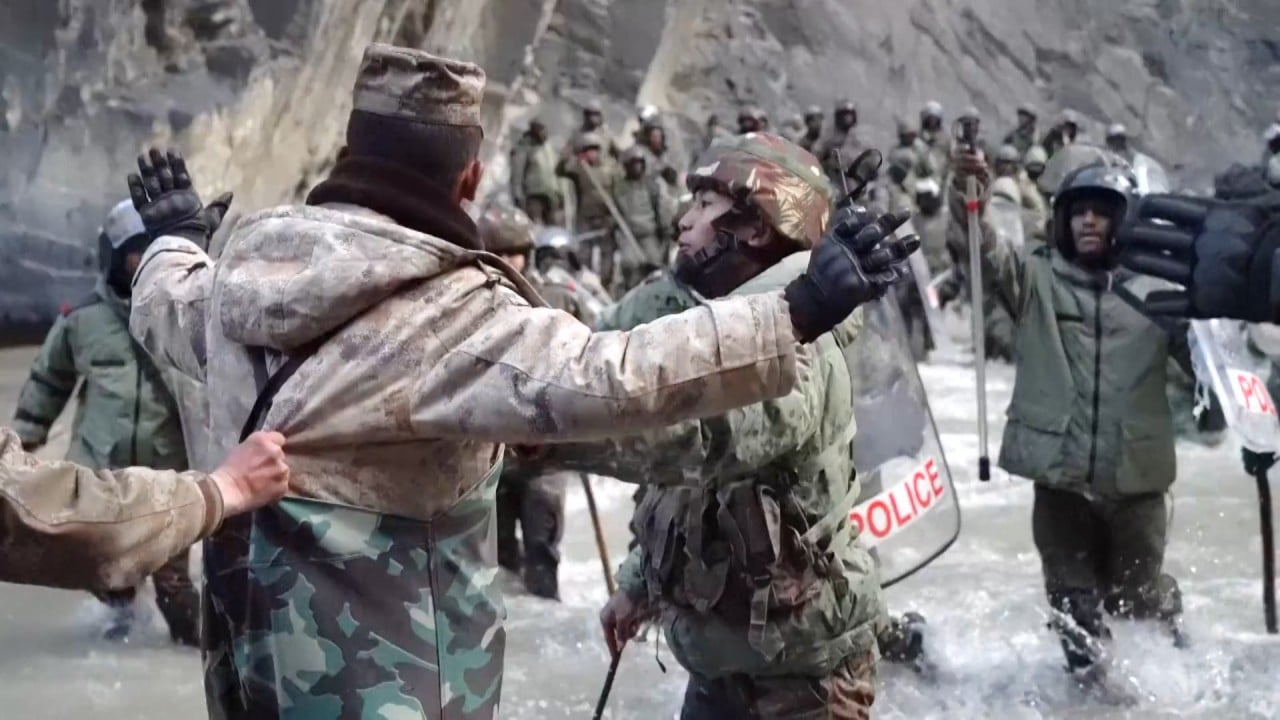
Tibet railway in focus as China vows change for landlocked Nepal, in move sure to worry India
- China will help Nepal realise its dream of becoming a ‘land-linked country’, Foreign Minister Wang Yi tells post-quake reconstruction conference
- US$8 billion cross-border railway from south Tibet to Kathmandu is key project in China’s belt and road plan in South Asia and a strategic worry for India
“China will make solid progress in the feasibility study of a cross-border railway project, improve the trans-Himalayan multidimensional connectivity network, and help Nepal realise its dream of changing from a ‘landlocked country’ to a ‘land-linked country’,” Wang told the conference via video link on Wednesday.
Experts say that the two sides’ renewed support for the project – stalled by engineering and environmental challenges – was clearly targeted at India’s dominance over its smaller neighbour.

Professor Madhav Nalapat, vice-chair of the Manipal Advanced Research Group, said the problem with the railway was that, while it had strategic value, it would have limited practical use as there was a lack of demand for trade on the route.
“Nor will there be much passenger demand,” Nalapat said. “Hence the view of many in India that the actual purpose of the railway is to speed up the entry of troops from China into Nepal [which borders India].”
Relations between Beijing and New Delhi have worsened since June last year, when Chinese and Indian troops engaged in a deadly hand-to-hand skirmish on their disputed border in the western Himalayas.
“There is a gap between China and India’s positions in South Asia, with India’s penetration of South Asian countries being much higher than China’s,” Lin Minwang, deputy director of the Centre for South Asian studies at Fudan University, said.
“China can help boost the economies of South Asian countries and, at the same time, enhancing relations with China is a way [for Nepal] of expressing dissatisfaction towards India.”
The Tibet-Kathmandu rail project has been opposed by India amid rising competition with China for strategic influence in the Himalayas, which saw authorities in Nepal agree to fast-track a rail connection from Kathmandu to the Indian mainland last year.
Rajeev Ranjan Chaturvedy, associate professor at Nalanda University, said India was concerned about the China-Nepal railway project’s potential ecological impact.
During Wednesday’s conference, Wang also pledged continued support for Nepal’s battle against the Covid-19 pandemic and for its post-quake recovery, while emphasising that aid should not come with strings attached.
“China supports Nepal’s leading position in rebuilding international cooperation. All parties should respect Nepal’s sovereignty, security and development needs and should not attach any political strings to assistance to Nepal,” he said.



